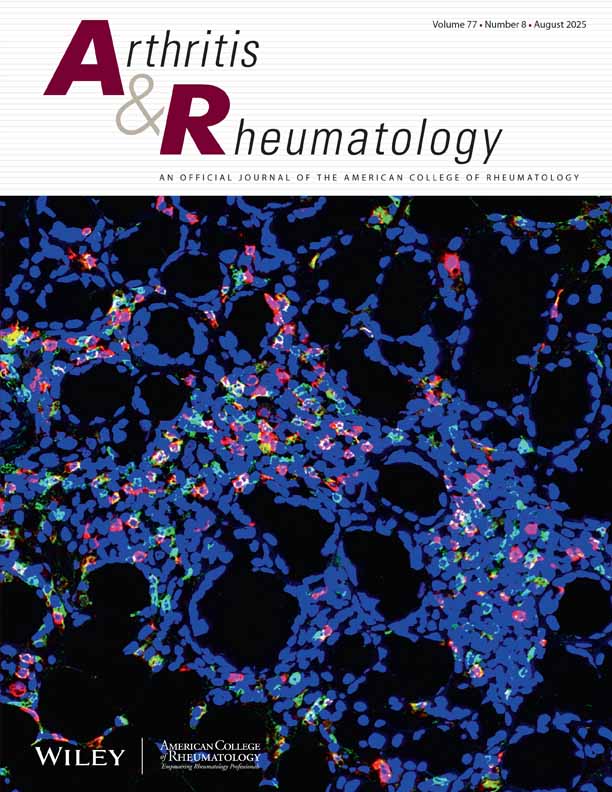Mycobacterial Hsp65-IgG–expressing tolerogenic B cells confer protection against adjuvant-induced arthritis in Lewis rats
Abstract
Objective
Tolerization of T cells directed against a target autoantigen is a desired goal of experimental approaches for the treatment of autoimmune diseases, and novel and improved methods of tolerance induction are continuously being sought. Because most traditional methods of tolerance induction using soluble antigen are effective in the prevention of autoimmunity but fail to control established disease, this study was carried out to explore an innovative tolerogenic approach for the treatment of ongoing disease, using the rat adjuvant-induced arthritis (AIA) model of human rheumatoid arthritis.
Methods
Lewis (RT.1l) rats were injected subcutaneously with heat-killed Mycobacterium tuberculosis H37Ra to induce AIA. Before or after AIA induction, Lewis rats were treated intraperitoneally (IP) with tolerogenic B cells expressing a fusion construct of mycobacterial 65-kd heat-shock protein (Hsp65) and IgG heavy-chain. For comparison, control rats were treated IP with ovalbumin (OVA)–IgG–expressing B cells or soluble mycobacterial Hsp65, and the effects on AIA were observed. We also tested the immune response to mycobacterial Hsp65 in B cell–tolerized rats.
Results
Administration of tolerogenic mycobacterial Hsp65–expressing B cells as well as soluble mycobacterial Hsp65, but not OVA-expressing B cells, resulted in a significant decrease in the severity of subsequent AIA. However, in rats with established disease, only the B cell regimen of mycobacterial Hsp65, but not the soluble antigen, suppressed ongoing AIA.
Conclusion
Mycobacterial Hsp65-IgG–expressing B cells can successfully attenuate the progression of AIA. This study introduces a promising approach for the treatment of arthritis that should be further explored.




